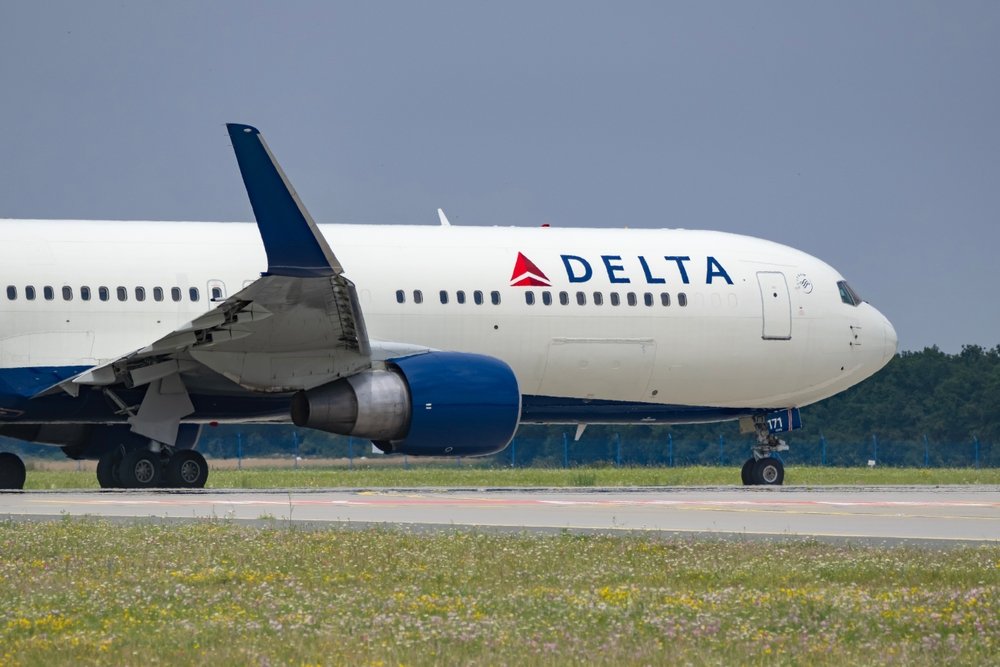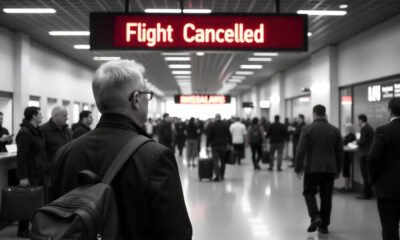AI in Travel
Here’s Their Wishlist for Making It Better

China’s travel agencies are embracing artificial intelligence at a rapid pace, but not without reservations.
A new Dragon Trail Research survey of 280 outbound travel agents, releasing Wednesday, shows that 82% of respondents already use AI in their daily operations. But many say the tools still lack the precision and nuance needed to fully meet expectations.
Agents said they mostly rely on AI for itinerary planning, translation, content suggestions, virtual travel assistants, and customer service. AI is also being used to manage bookings and customer data. Tasks like translating menus or suggesting local transport options are helping staff focus on what travelers increasingly demand: personalized service.
Where AI Still Misses the Mark
Despite its widespread use, agents point to several areas where AI falls short. Translation tools, for instance, often misinterpret dialects or fail to capture tone and context. That can be a problem when communicating nuanced travel information.
“It would be even better if the system could intelligently tag and tally every place a guest has already visited, then automatically filter those out when making new recommendations – no repeats, just fresh ideas,” one agent said in the report.
Itinerary planners, another popular use case, are seen as too rigid. Agents said they want more weather-aware suggestions and itinerary recommendations that are tailored, not just cookie-cutter templates.
For the 18% of agencies that haven’t yet adopted AI, the hesitation is tied to functionality. Over half of non-users said they want better translation and more intelligent customer service tools before making the leap. Many are waiting for the technology to mature before committing.
Outbound Travel Rebounds, Cautiously
The report also provides a pulse check on China’s outbound travel market, which continues its slow rebound following the pandemic.
More than 60% of agents said business so far in 2025 has improved compared to last year. But the optimism is tempered as 17% reported that conditions have become more difficult. The reasons? Economic instability, global conflicts, and a widening gap between traveler demands and what smaller agencies can deliver.
A noticeable trend this year is the increased focus on older travelers. In the July survey, 23% of agents said they were selling to the senior market, up from 14% in January.
While East Asia and Western Europe are the top two sub-regions with the most travel agencies selling tours and the best sales performance, Central Asia and some lesser-known South American countries are drawing attention for those seeking something different.
Europe Is a Top Seller, But Engagement Lags
Interest in European travel is clearly growing. Agents now rank Western Europe just behind East Asia for both product availability and sales performance. France, the UK, Switzerland, Iceland, and Italy are seen as offering the most potential.
Yet, the marketing doesn’t always match the interest. Only 35% of surveyed agents said they had attended any promotional events for European destinations in the past two years, and all of those were for Western European countries.
Agents are asking for more support. They want up-to-date materials on cultural and historical attractions, safety, transportation, and local customs. Since Chinese tourists tend to visit multiple countries on one trip, multi-country itineraries are in higher demand than single-country ones.
The clients traveling to Europe are younger, mostly those born in the 1990s and 2000s. Couples and families with mid-range budgets dominate, and most want customized or independent travel options rather than group tours.
Personalization Isn’t a Bonus, It’s Expected
The most defining shift in China’s outbound travel market is the demand for personalization. The era of one-size-fits-all travel is over.
Agents say travelers now want experience-driven, customized trips. Study tours, themed itineraries, and off-the-beaten-path destinations are viewed as growth areas.
But this is putting a strain on smaller agencies, which may lack the tools or staff to keep up with such fragmented preferences.
The trend toward personalization is most visible in the types of travel being sold.
Small group tours, typically for 10 to 20 people, have become the most commonly sold and best-performing product. Family travel and high-end customized packages are also strong sellers. Gen-Z and affluent travelers, in particular, are driving this shift toward tailor-made experiences.
The travel industry’s top event returns this fall.
September 16-18, 2025 – NEW YORK CITY
AI in Travel
Talking to me takes the stress out of trip planning.

BarcelonaLayla has been planning trips since 2024. To talk, you don’t need to visit an agency, make a phone call, or observe any time restrictions: any device with an internet connection is sufficient to reach her. Layla presents herself with the self-confidence characteristic of job interviews: “Talking to me takes the stress out of planning trips,” “talking to me is like having your own travel guru without the high price.” But Layla isn’t just any worker: she’s an artificial intelligence (AI).
AI in Travel
Delta rejects AI pricing under political heat

Major Carrier Commits to Fair Pricing Amid Growing Congressional Scrutiny
Delta Air Lines has taken a definitive stance against artificial intelligence-powered personalized ticket pricing, responding to mounting pressure from federal lawmakers and widespread consumer anxiety about algorithmic discrimination in air travel costs.
The Atlanta-based carrier’s position emerged following sharp criticism from prominent Democratic senators who questioned whether the airline planned to use AI technology to extract maximum revenue from individual passengers based on their personal financial profiles.
Congressional Pushback Intensifies
Democratic Senators Ruben Gallego of Arizona, Mark Warner of Virginia, and Richard Blumenthal of Connecticut spearheaded the legislative challenge, arguing that AI-driven individualized pricing could exploit travelers by calibrating fares to their perceived ability to pay premium rates.
The senators’ concerns centered on algorithmic pricing systems that could analyze personal data — from browsing history to demographic information — to determine how much each customer might be willing to spend on airfare.
Delta’s response was unequivocal. The airline categorically denied any intention to implement pricing algorithms that target individual consumers with customized rates based on personal information. This commitment represents a significant policy declaration in an industry increasingly embracing artificial intelligence across operations.
Technology Integration Without Personalization
While rejecting personalized AI pricing, Delta plans substantial technological advancement through its partnership with Fetcherr, an AI pricing specialist. The collaboration aims to deploy AI-based revenue management systems across 20 percent of the carrier’s domestic route network by late 2025.
The distinction Delta emphasizes lies in data aggregation versus individual targeting. The airline maintains its pricing algorithms will analyze broad market trends, competitive landscapes, and general demand patterns rather than personal consumer profiles.
This approach reflects traditional airline revenue management practices that have utilized dynamic pricing for three decades, adjusting fares based on factors like seasonal demand, fuel costs, and competitive positioning.
Industry-Wide Ethical Concerns
American Airlines Chief Executive Robert Isom echoed Delta’s position, stating that AI-driven personalized pricing could fundamentally undermine passenger trust in airline fairness. His comments suggest growing industry recognition that aggressive algorithmic pricing could trigger regulatory backlash and consumer boycotts.
The airline industry’s cautious approach contrasts sharply with retail sectors where personalized pricing has become increasingly common, particularly in e-commerce platforms that adjust prices based on user behavior and demographics.
Legislative Response Takes Shape
Representatives Greg Casar of Texas and Rashida Tlaib of Michigan have introduced federal legislation specifically targeting AI pricing discrimination. Their proposed bill would prohibit companies from using artificial intelligence to set individualized prices or wages based on sensitive personal data.
The legislation addresses scenarios where algorithms might exploit vulnerable moments, such as raising travel prices for individuals searching for family funeral information or medical emergency travel.
A Federal Trade Commission report released in January documented widespread retail use of personal information for price customization, highlighting consumer vulnerability to algorithmic manipulation across multiple industries.
Market Dynamics and Consumer Protection
Delta‘s commitment comes as airlines face unprecedented scrutiny over pricing transparency and fairness. The carrier emphasized that its pricing philosophy will continue reflecting market-wide factors rather than individual consumer analysis.
The airline industry’s embrace of artificial intelligence spans multiple operational areas, from route optimization to customer service automation. However, pricing applications have generated the most significant regulatory and public relations challenges.
Senator Gallego acknowledged Delta’s commitment while pressing for greater transparency about data collection practices and pricing methodologies. His comments highlighted ongoing congressional interest in monitoring airline compliance with anti-discrimination principles.
The debate reflects broader societal tensions about artificial intelligence applications in consumer-facing industries, particularly where algorithmic decisions could exacerbate economic inequality or exploit personal circumstances.
Delta’s proactive stance may influence competitor policies and establish industry standards for ethical AI implementation, potentially preventing more restrictive federal regulations while maintaining consumer confidence in airline pricing fairness.
AI in Travel
India Emerges as a Leader in AI Adoption and Travel Enhancement, ETTravelWorld

Indian travellers are embracing AI like never before. According to Booking.com’s Global AI Sentiment Report, Indian consumers are among the most positive globally towards artificial intelligence, with 99 per cent expressing excitement, 98 per cent open to using AI in travel, and 96 per cent familiar with the technology.
However, while enthusiasm runs high, trust in full AI autonomy lags. Only 16 per cent of Indian travellers fully trust AI, and just 12 per cent are comfortable with AI making independent travel decisions without human input. The majority see AI as a powerful assistant—not a replacement—for human judgment.
“Generative AI represents one of the most significant technological shifts of our era,” said Santosh Kumar, Regional Manager, South Asia, at Booking.com. “In India, people are not just curious — they’re actively using AI to shape better travel experiences. The opportunity is enormous, but so is our responsibility to guide travellers with trust and transparency.”
Key India-Specific Insights from the Report:
Top travel AI uses: researching destinations (53 per cent ), finding local experiences (44 per cent ), and getting restaurant recommendations (42 per cent )
– In-trip AI use: translation (55 per cent ), local suggestions (52 per cent ), navigating transport (41 per cent )
– Post-trip AI use: photo editing (51 per cent )
– 45 per cent trust AI assistants more than travel bloggers (36 per cent ) or social media influencers (31 per cent )
– 87 per cent already use AI for some aspect of travel
– 82 per cent value AI tools that reduce crowding and overtourism
Despite this uptake, 92 per cent of Indian respondents still express at least one concern around AI, particularly its impersonal nature and the need for verification: 32 per cent always fact-check AI results, and 38 per cent find it lacks the human touch.
The report categorizes Indian AI sentiment into groups:
– 46 per cent – AI Enthusiasts
-28 per cent – AI Advocates
– 10 per cent – AI Detractors
– 5 per cent – AI Cautious
– 4 per cent – AI Skeptics
Globally, APAC ranks among the most AI-friendly regions, while North America and Europe exhibit more skepticism and demand for transparency.
Bottom Line:
India is leading the charge into AI-powered travel, driven by curiosity, convenience, and a willingness to experiment—but travellers still want human validation. Booking.com is building on this momentum to make AI a more transparent, empowering tool for the next generation of global explorers.
-

 Brand Stories2 weeks ago
Brand Stories2 weeks agoBloom Hotels: A Modern Vision of Hospitality Redefining Travel
-

 Brand Stories1 week ago
Brand Stories1 week agoCheQin.ai sets a new standard for hotel booking with its AI capabilities: empowering travellers to bargain, choose the best, and book with clarity.
-

 Destinations & Things To Do2 weeks ago
Destinations & Things To Do2 weeks agoUntouched Destinations: Stunning Hidden Gems You Must Visit
-

 Destinations & Things To Do1 week ago
Destinations & Things To Do1 week agoThis Hidden Beach in India Glows at Night-But Only in One Secret Season
-

 AI in Travel2 weeks ago
AI in Travel2 weeks agoAI Travel Revolution: Must-Have Guide to the Best Experience
-

 Brand Stories4 weeks ago
Brand Stories4 weeks agoVoice AI Startup ElevenLabs Plans to Add Hubs Around the World
-

 Brand Stories3 weeks ago
Brand Stories3 weeks agoHow Elon Musk’s rogue Grok chatbot became a cautionary AI tale
-

 Asia Travel Pulse4 weeks ago
Asia Travel Pulse4 weeks agoLooking For Adventure In Asia? Here Are 7 Epic Destinations You Need To Experience At Least Once – Zee News
-

 AI in Travel4 weeks ago
AI in Travel4 weeks ago‘Will AI take my job?’ A trip to a Beijing fortune-telling bar to see what lies ahead | China
-

 Brand Stories4 weeks ago
Brand Stories4 weeks agoChatGPT — the last of the great romantics













You must be logged in to post a comment Login